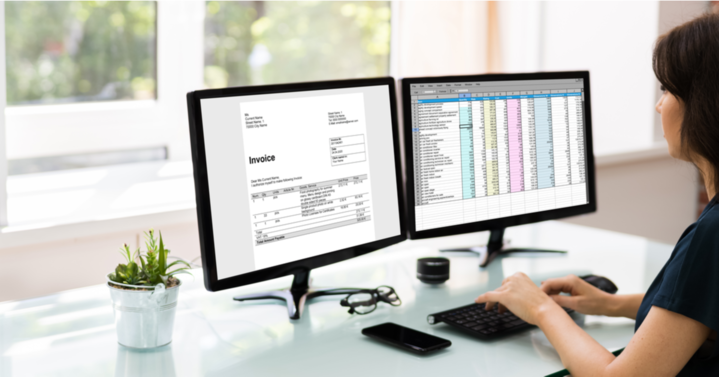Freight accounting and freight finance are terms that refer to the tracking of expenses associated with the transportation of goods from one location to another in the supply chain. This financial balance between costs and profits lies at the heart of all companies that leverage supply chain technologies to streamline the management of shipping and transportation. According to an article by the Indeed Editorial Team, “Ensuring companies and customers receive their goods safely and timely is an important part of helping businesses operate efficiently and successfully. Organizations must track and analyze the costs associated with transferring goods. Freight accounting allows companies to understand their expenses better and identify areas where they may be able to cut costs.” This blog outlines the critical steps to take to ensure effective transportation finance management within the supply chain.
Connect Your Data Streams
Most supply chain networks operate multiple data streams and continually work to compile data into usable metrics. Connecting all data streams and organizing information into a single collaborative platform makes it faster and easier to transform the data into actionable insights.
Audit ALL Invoices to Catch Errors
Every invoice ideally needs to be audited, even those for smaller clients. While large invoices seem like a natural focus for brokerage accounting and auditing, smaller clients also deserve a double-check with a quick audit. Errors that get passed over on small invoices can quickly add up, especially if they happen repeatedly on a monthly or weekly basis. Additionally, auditing helps to ensure your revenue and profit margins are always above reproach.

Eliminate Shippers That Do NOT Pay
If audits and invoice checks show that shippers routinely do not pay invoices, it is often better to simply not do business with them any longer. This provides opportunities to find better shipper partners , and perhaps save time and money as well.
Know How Long Your Shippers Take to Pay
If shippers always pay late or have to be chased down and repeatedly hounded to secure payments, it is best to cut ties with them. They likely are eating up more finances and resources to keep tabs on them than what they are worth constantly. Brokerage services and routine auditing checks can help identify these shippers.
Take Advantage of Multiple Financing Options
Freight accounting also focuses on ensuring management considers all financing options. With suitable freight financing options in hand, supply chain managers can provide the best services and ensure shipping options are available when and where needed.
Leverage an App-Based Factoring Solution
Technology continually drives the digital transformation of supply chain logistics, making day-to-day management and operations much more streamlined and manageable. Taking advantage of freight factoring-based resources that leverage apps, AI technology, mobile communications, and real-time monitoring features can help improve financial monitoring and auditing, and bolster freight accounting services as well.
Remember to Consider Fees and Total Costs When Choosing a Factoring Solution
When it comes to proper freight factoring and brokerage accounting services, fee and expense monitoring continually become a vital part of cost management. Demurrage fees, drayage expenses, customs, international taxes, and special handling and shipping expenses must be considered when choosing the right freight financing solutions.
Evaluate the Full Context of Shipping Execution
All typical shipping execution and processing aspects need to be considered part of the freight brokerage and monitoring process. This includes ease of handling, shipping and timeline adherence, timeliness of payments, and other vital financial considerations. All of this is best done before accepting a load to verify the profitability and practicality of the shipment.
Carefully Consider ‘Freight In’ Types of Freight Factoring
‘Freight in’ refers to a transaction where the buyer covers the freight costs. The fees for transporting the goods fall to the buyer, and the buyer assumes all the risks involved in moving the freight. This option stays popular when it comes to transportation financing.
Carefully Consider ‘Freight Out’ Types of Freight Factoring
‘Freight out’ applies to a transaction where the seller covers all freight expenses. The seller looks at these expenses as part of their business and budget alongside all other fees and costs. This option often shows up during freight finance planning.
Put These Best Practices to Work With the Right Solution
Freight accounting and freight finance continue to be vital components for the modern supply chain network. All companies that rely on the supply chain network today can benefit from these best practices and tips for freight factoring. Request of a demo of HaulPay to see how you can put a world-class freight factoring and finance solution to work in your accounting department today.
